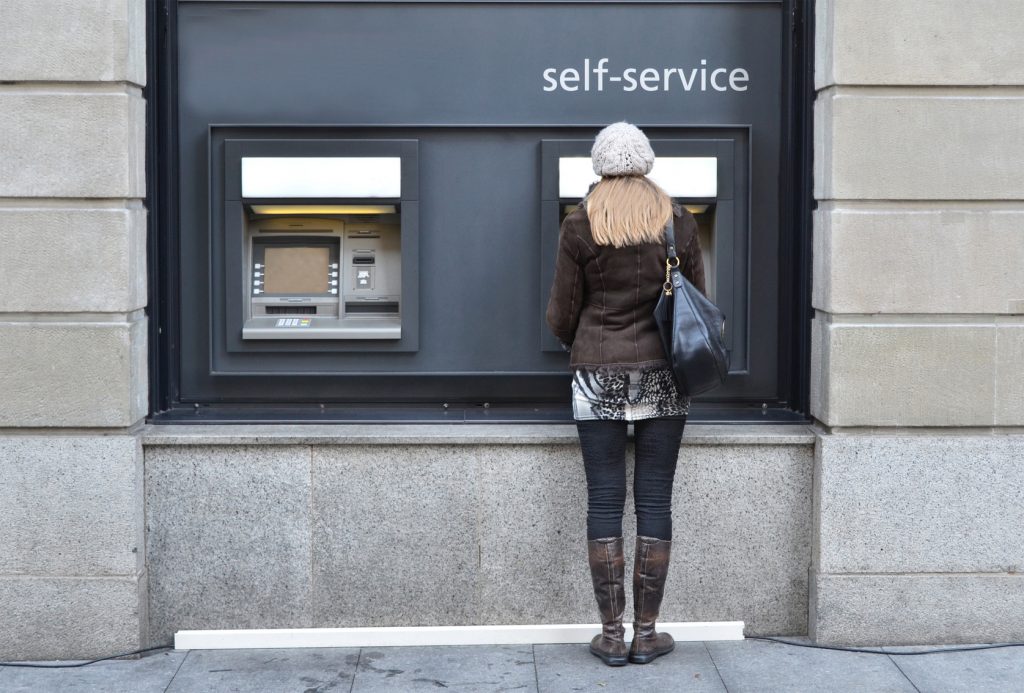A current account is like a best friend of long standing, someone you have known for a long time and whom you trust to help you. It is reliable and dependable. Sometimes you make demands on your current account that are bordering on unreasonable and you hope that it won’t let you down. Like a good friend it gives even when there is little or nothing left to give. Your financial secrets can be gleaned from perusal of your current account records but like your friend it keeps these secrets to itself and protects your confidentiality. If one’s current accounts could talk they would have many stories to tell. Your ups and downs for many years are chronicled therein and that is information that you would be reluctant to share even with a best friend.
It may come as a bit of a shock to you that if you are in financial trouble to the extent of being insolvent and are considering entering into an Individual Voluntary Arrangement (IVA) with your creditors that you may have to say goodbye to your old friend. The problem with your current account is the overdraft facility. If you enter an IVA, all of your debts have to be disclosed and entered into the arrangement. It is likely that your current account is overdrawn at any given time. It may occasionally be in the black at certain times such as when wages, salary, other earnings or other funds are paid into it but if you are like the majority of people in these recessionary times, its usual colour will be embarrassingly red. In any case, given that you insolvent, as you must be to enter an IVA, the balance of your current account is likely to fluctuate somewhere between your authorized overdraft limit and a small credit balance. As soon as your bank becomes aware that you are planning to enter into an IVA or even just considering doing so, it is likely to freeze all transactions on your current account, even if you are not overdrawn to the full extent of your authorized overdraft limit.

Such an action by your bank could be a disaster for you. Even if your current account were in a reasonably healthy state comparatively speaking, for example when your salary has just been paid into it, you could suddenly find that you cannot access cash from the hole in the wall. Direct debits mandates for your mortgage or rent, vehicle HP, utilities such as water, gas and electricity, TV license, house and car insurance, life assurance, council tax, Sky and so on could cease to be executed by your bank.
When you enter into an IVA, you have to stop using all forms of credit except with the express permission of the insolvency practitioner (IP) supervising the IVA. If your IVA is approved by your creditors, you will be expected to cut up any credit cards or store cards you may have. Furthermore, you will not be permitted to obtain any new credit cards or store cards during the term of your IVA, which is frequently of five years duration. Breaching this requirement will almost certainly lead to the failure of your IVA.
The one exception allowed is that you may retain a current account. The usual practice is that before you proceed with your IVA, your IP is likely to advise you to open a brand new current account with a bank or other financial institution, with which you have no liabilities. You will normally not be allowed to have an overdraft facility on the new account but, with the express permission of your IP, a nominal overdraft facility of perhaps up to £100 may be permitted. Your IP may require that the new account be restricted in other ways relating to the use of checking or debit card facilities. Having opened the new account you must arrange to have your wages salary and any other income paid directly into it. You must also ensure that direct debits mandates for your priority debts such as your mortgage, car HP and utilities are set up on the new account and that all your old direct debits mandates and standing order instructions on your old account are stopped. While you will keep paying your priority debts in full as they fall due, you will cease making payments on all your unsecured debts. If you are in doubt as to which debts are which, simply ask your IP for advice. The scheduling and timing of all activities relating to changing your bank account and related transactions is important and it should be done well in advance of the circulation of your IVA proposals to your creditors.
There is one scenario where you may retain your existing current account and that is where it is not overdrawn and you have no other liabilities on any other accounts to the same service provider or creditor, provided that you arrange for any existing overdraft facility on your current account to be permanently removed. However, people often prefer to open a new current account rather than to have to try to explain matters to their old bank. Your IP will be able to suggest alternative service providers who are not associated with your existing current account provider. Indeed even if you are not insolvent now but fear that you may become so some time in the future, you might consider opening and maintaining a clean current account now, given the potential difficulties that you might encounter when your credit file begins to be impaired, as it would be if you ever decide to enter into an IVA.